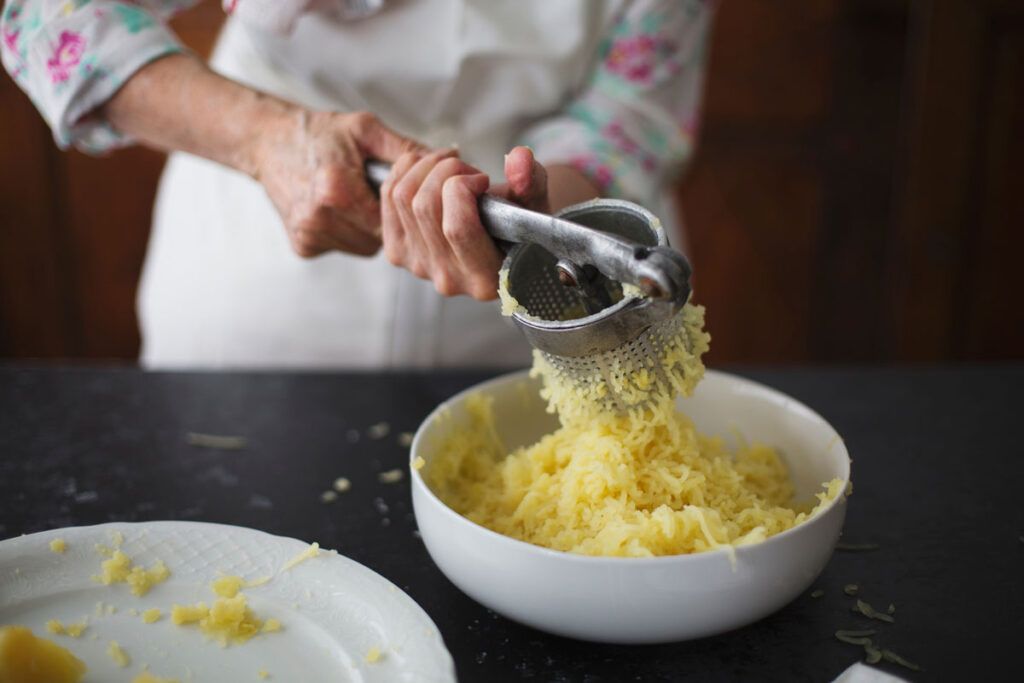Gastritis is when the stomach lining (the mucosa) is inflamed. It may be chronic or acute — in other words, long term or sudden and temporary.
Causes of gastritis, according to the National Institute of Diabetes and Digestive and Kidney Diseases (NIDDK), may include:
- infection with Helicobacter pylori bacteria
- certain medications
- high alcohol consumption
- tobacco use
- autoimmune conditions
- dietary habits
Gastritis may lead to symptoms like:
- stomach pain
- bloating
- nausea and vomiting
- belching
- feeling full even after eating small amounts of food
- stomach ulcers
- nutrient deficiencies
Alongside medical treatment, following specific eating plans may help manage your symptoms.
Best foods for gastritis relief

If you have gastritis, it may help to prioritize foods that are gentle on the stomach.
A 2022 population-based cohort study that included data from over 140,000 participants found that specific foods may reduce the chance of stomach ulcers and worsened symptoms:
- High fiber fruits and vegetables: Bananas, apples, berries, broccoli, spinach, and carrots are rich in fiber and antioxidants, which may help reduce inflammation and promote digestive health.
- Whole grains: Brown rice, quinoa, oats, and whole wheat bread may be other good sources of fiber to help regulate digestion and reduce the chance of gastritis.
- Healthy fats: Avocados, olive oil, fatty fish, and nuts may provide energy and reduce inflammation in your stomach.
- Green tea: Green tea is rich in polyphenols, which are plant compounds that may reduce inflammation.
Foods to avoid for gastritis
The 2022 study above suggests limiting or avoiding the following foods and drinks:
- Spicy foods: Spicy foods may irritate the stomach and worsen gastritis symptoms.
- Fried and fatty foods: Fried foods and those high in saturated fats can slow digestion and increase bile acid production and pro-inflammatory compounds.
- Carbonated beverages: The sugars in fizzy drinks may weaken a muscle called the esophageal sphincter and increase the pressure in your stomach and esophagus. This can irritate your stomach lining and change the bacteria in your gut.
- Alcohol: A high alcohol intake is a potential cause of gastritis, so alcohol is best avoided or kept in moderation.
- High salt foods: Excessive salt may damage the stomach lining and increase the growth of H. pylori bacteria.
What worsens gastritis symptoms in one person may not cause issues for you, and vice versa. You can try keeping a diary of your symptoms and chosen foods to identify any individual links between what you eat and drink and how you feel.
Bland diet for gastritis pain (for acute symptoms)
During acute flare-ups of gastritis pain — for example, if you have an ulcer — you may find that a bland diet alleviates symptoms. This diet is not intended long term but as a temporary way to relieve challenges like pain, nausea, or severe reflux.
A bland diet for gastritis typically consists of easily digestible, low fiber, nonspicy, soft, and cooked foods. It excludes options high in fat, salt, fiber, and acid.
Some suitable options to consider include:
- low fat dairy
- eggs
- vegetable or beef broth
- cream of wheat
- lean meats, like skinless chicken and fish
- pudding
- bland vegetables, like spinach and carrots
- noncaffeinated teas
- natural fruit juices
- tofu
- apple sauce
- mashed potatoes low in salt
Dietary guidelines for gastritis
In addition to eating and avoiding specific foods, following a dietary protocol may help keep some of your symptoms at bay. For example, they may improve reflux, nausea, or overall digestion.
Consider these guidelines:
- eating smaller, more frequent meals
- chewing food thoroughly
- staying hydrated
- avoiding eating too close to bedtime
- sleeping with your head elevated
- prioritizing physical activity
- engaging in relaxation techniques
Treatment for gastritis
A doctor may recommend over-the-counter (OTC) or prescription medications to reduce inflammation, manage symptoms, and treat underlying gastritis causes.
These medications for gastritis may include:
- Proton pump inhibitors (PPIs): Omeprazole (Prilosec), pantoprazole (Protonix), and esomeprazole (Nexium) are examples of PPIs that may help reduce stomach acid production, which can help improve gastritis symptoms.
- Antibiotics: If gastritis is due to an infection, such as H. pylori, a doctor may prescribe antibiotics like amoxicillin (Amoxil) or clarithromycin (Biaxin) to treat it.
- Nutrient supplements: Sometimes, gastritis can lead to deficiency in vitamins B12, C, or D, folic acid, zinc, magnesium, calcium, or iron. Therefore, a doctor may recommend supplementing with these nutrients.
- Anti-inflammatory drugs: Some people may benefit from OTC pain relievers and anti-inflammatory medications like aspirin or ibuprofen (Advil).
If you need help covering the cost of medications, the free Optum Perks Discount Card could help you save up to 80% on prescription drugs. Follow the links on drug names for savings on that medication, or search for a specific drug here.
